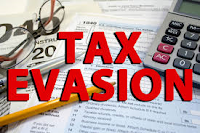According to DoJ, a Houston Attorney Convicted of Offshore Tax Evasion Scheme Conspired to Repatriate More Than $18 Million in Untaxed Money Held in Foreign Banks
A Houston, Texas, attorney was convicted on September 6, 2019 of one count of conspiracy to defraud the United States and three counts of tax evasion.
According to the evidence presented at trial, Jack Stephen Pursley, also known as Steve Pursley, conspired with a former client to repatriate more than $18 million in untaxed income that the client had earned through his company, Southeastern Shipping.
Knowing that his client had never paid taxes on these funds, Pursley designed and implemented a scheme whereby the untaxed funds were transferred from Southeastern Shipping’s business bank account, located in the Isle of Man, to the United States.
Pursley helped to conceal the movement of funds from the Internal Revenue Service (IRS) by disguising the transfers as stock purchases in United States corporations owned and controlled by Pursley and his client.
At trial, the government proved that Pursley received more than $4.8 million and a 25% ownership interest in the coconspirator’s ongoing business for his role in the fraudulent scheme.
For tax years 2009 and 2010, Pursley evaded the assessment of and failed to pay the income taxes he owed on these payments by, among other means, withdrawing the funds as purported non-taxable loans and returns of capital.
The government showed at trial that Pursley used the money he garnered from the fraudulent scheme for personal investments, and to purchase assets for himself, including a vacation home in Vail, Colorado and property in Houston, Texas.
Judge Lynn Hughes has set sentencing for Dec. 9. Pursley faces a statutory maximum sentence of five years (5) in prison for the conspiracy count, and five (5) additional years in prison for each count of tax evasion. He also faces a period of supervised release, monetary penalties, and restitution.
Read more at: Tax Times blog













